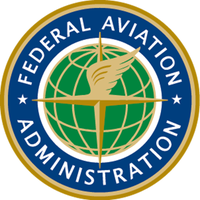Boeing's Guilty Plea: A Turbulent Timeline
July 9, 2024, 4:06 am

Location: United States, District of Columbia, Washington
Employees: 10001+
Founded date: 1958

Location: United States, Illinois, Chicago
Employees: 10001+
Founded date: 1916
Total raised: $25.01B
Boeing's agreement to plead guilty to a criminal fraud conspiracy charge and pay a hefty fine of $243.6 million marks a turbulent chapter in the company's history, marred by fatal 737 MAX crashes and a series of quality control issues. The plea deal, which requires a federal judge's approval, would brand Boeing as a convicted felon, adding to the company's already tarnished reputation.
The timeline of events leading up to this moment is riddled with tragedy and controversy. From the Lion Air crash in Indonesia in October 2018 to the Ethiopian Airlines crash in March 2019, the 737 MAX faced intense scrutiny and regulatory backlash. China was the first country to ground the MAX, followed by others, including the U.S. FAA.
Boeing's response to the crisis was marred by missteps and internal turmoil. CEO Dennis Muilenburg was fired in December 2020, and production of the 737 MAX was suspended in January 2020, marking a significant setback for the company. The FAA's decision to lift the grounding order in November 2020 was a glimmer of hope for Boeing, but the road to recovery was far from smooth.
Quality control issues continued to plague Boeing, with production halts and delivery delays becoming the norm. The company's relationship with suppliers, including Spirit AeroSystems, came under scrutiny, leading to a series of setbacks and production challenges. The mid-air cabin blowout incident involving an Alaska Air 737 MAX 9 in January 2024 further exacerbated Boeing's woes, prompting the FAA to ground 171 of these jets.
The DOJ's investigation into Boeing's conduct before the fatal crashes uncovered a pattern of deception and negligence. The company's failure to disclose critical safety information and its misleading representations to the FAA about the MCAS software feature used on the MAX were key factors in the criminal probe. The plea agreement, which includes a hefty fine and a commitment to invest in safety and compliance programs, is a stark reminder of the consequences of corporate misconduct.
As Boeing navigates the fallout from this latest development, the company faces a long road to redemption. The appointment of a third-party monitor to oversee compliance, along with probationary measures, underscores the gravity of the situation. The families of the victims of the MAX crashes have expressed their opposition to the plea deal, arguing that it fails to hold Boeing fully accountable for the loss of 346 lives.
Boeing's guilty plea is a sobering reminder of the human cost of corporate negligence and the importance of transparency and accountability in the aviation industry. As the company grapples with the fallout from this latest chapter in its history, the road to rebuilding trust and restoring its reputation will be fraught with challenges.
The timeline of events leading up to this moment is riddled with tragedy and controversy. From the Lion Air crash in Indonesia in October 2018 to the Ethiopian Airlines crash in March 2019, the 737 MAX faced intense scrutiny and regulatory backlash. China was the first country to ground the MAX, followed by others, including the U.S. FAA.
Boeing's response to the crisis was marred by missteps and internal turmoil. CEO Dennis Muilenburg was fired in December 2020, and production of the 737 MAX was suspended in January 2020, marking a significant setback for the company. The FAA's decision to lift the grounding order in November 2020 was a glimmer of hope for Boeing, but the road to recovery was far from smooth.
Quality control issues continued to plague Boeing, with production halts and delivery delays becoming the norm. The company's relationship with suppliers, including Spirit AeroSystems, came under scrutiny, leading to a series of setbacks and production challenges. The mid-air cabin blowout incident involving an Alaska Air 737 MAX 9 in January 2024 further exacerbated Boeing's woes, prompting the FAA to ground 171 of these jets.
The DOJ's investigation into Boeing's conduct before the fatal crashes uncovered a pattern of deception and negligence. The company's failure to disclose critical safety information and its misleading representations to the FAA about the MCAS software feature used on the MAX were key factors in the criminal probe. The plea agreement, which includes a hefty fine and a commitment to invest in safety and compliance programs, is a stark reminder of the consequences of corporate misconduct.
As Boeing navigates the fallout from this latest development, the company faces a long road to redemption. The appointment of a third-party monitor to oversee compliance, along with probationary measures, underscores the gravity of the situation. The families of the victims of the MAX crashes have expressed their opposition to the plea deal, arguing that it fails to hold Boeing fully accountable for the loss of 346 lives.
Boeing's guilty plea is a sobering reminder of the human cost of corporate negligence and the importance of transparency and accountability in the aviation industry. As the company grapples with the fallout from this latest chapter in its history, the road to rebuilding trust and restoring its reputation will be fraught with challenges.